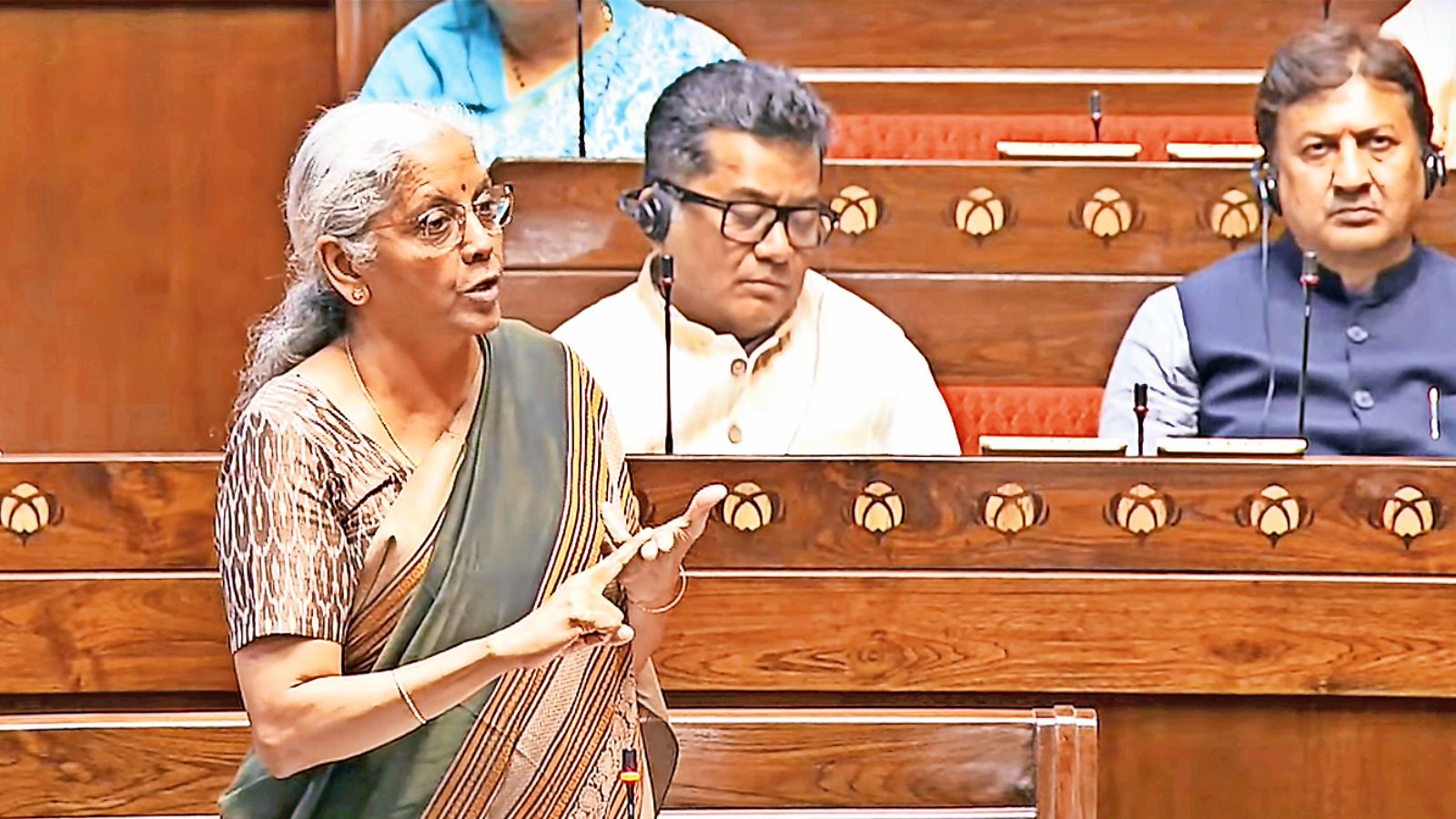Amid concerns by Opposition members on proposed amendments, Parliament Wednesday passed the Banking Laws (Amendment) Bill, 2024, which allows bank account holders to have up to four nominees.
Lok Sabha had passed the Banking Laws (Amendment) Bill in December 2024.
Replying to a debate on the Bill in Rajya Sabha, Finance Minister Nirmala Sitharaman said that even though NPAs have decreased drastically, the government is committed to taking stringent action against wilful defaulters. She added that in the last five years, ED has taken up over 912 cases related to bank frauds, including those pertaining to wilful defaulters.
“Write-offs do not mean waiving off loans, and the banks will continue to make efforts to recover the funds,” Sitharaman said, while also adding that public sector banks posted the highest-ever profit of about Rs 1.41 lakh crore in the last fiscal, and said their profitability would increase in 2025-26.
Another change in the Bill relates to redefining the term “substantial interest” of a person in a bank. The limit is sought to be enhanced to Rs 2 crore from the current Rs 5 lakh, which was fixed almost six decades ago.
The Bill also seeks to increase the tenure of directors (excluding the chairman and whole-time director) in cooperative banks from 8 years to 10 years, so as to align with the Constitution (Ninety-Seventh Amendment) Act, 2011. Once it comes into effect, the amendment would allow a director of a Central Cooperative Bank to serve on the board of a State Cooperative Bank. It also seeks to give greater freedom to banks in deciding the remuneration to be paid to statutory auditors.
More than 20 MPs participated during the four-hour discussion on the Bill in the post- lunch session, with some saying it fails to keep pace with the rapidly evolving financial landscape.
Story continues below this ad
Citing official data, Congress member Shaktisinh Gohil said that the government has written off Rs 87,000 crore owed by 50 wilful defaulters till 2024. “People, including Mehul Choksi and Rishi Agarwal are in the list of those wilful defaulters. The government has written off loans to those people who looted this country and fled abroad. But when poor, small traders and farmers default on loans the government auctions their assets,” he said.
Participating in a discussion, IUML’s Harish Beeren said RS must ponder over amendments to the five banking laws that are brought at “single stroke”.
“Certain provisions warrant deeper scrutiny and potential revision.” While acknowledging the intent of the Bill, While acknowledging the intent of the Bill, NCP (SP) member Fauzia Khan pointed out that the Bill overlooks crucial challenges facing rural and cooperative banks, including high NPAs and technological infrastructure limitations. She called for a dynamic approach to the Rs 2 crore threshold for substantial interest, suggesting it should be indexed to inflation and economic conditions.
Citing data, she highlighted that 4,016 cooperative banks have reported financial frauds in the last five years, underlining the urgent need for comprehensive digital risk mitigation strategies.
Story continues below this ad
TMC’s Saket Gokhale claimed that Indian banks are “being crushed under the burden of NPAs”. “In just the last five years Indian banks have had a staggering Rs 10 lakh crore in NPAs,” he said, adding, “this is created by a bunch of 10-15 people who defrauded the system and left the country”.
Countering the Opposition, BJP leader Kavita Patidar said, “Through this Bill, the government has given new direction and strength to the banking sector. The amendments have been proposed to set right the wrong doings.”
Patidar alleged that during the UPA regime, there was huge corruption in the banking system. However after 2014, the Modi government ensured that each one is connected with the banking system and funds to beneficiaries of welfare schemes are transferred directly into the bank accounts.






